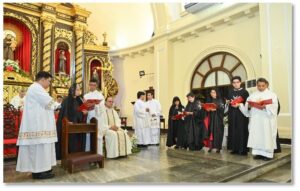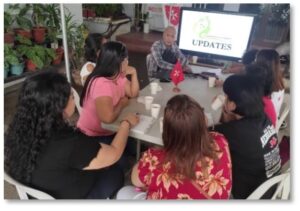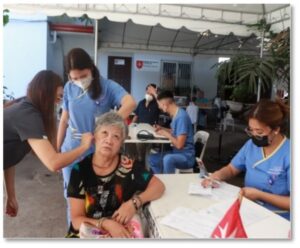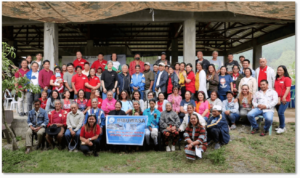Champions of Change: The Sovereign Order of Malta Amidst Revolution and Social Transformation in the Philippines
Through the unrest, in 1984, Don Antonio Infante y Roxas replaced Don Jesus Cabarrus after being elected the Order’s new president. Infante was from Pampanga, and was the eldest son in a family of nine children. In 1952, he graduated with a Bachelor of Law from the University of Santo Tomas, the Royal and Pontifical university. Starting out as a corporate lawyer for the Andres Soriano Corporation, he quickly rose through the ranks, eventually being appointed to the position of Executive Vice President.
Aside from being successful in his chosen field, Infante, having a strong love for the Church, dedicated himself to social service. He was the president of the Holy Rosary Foundation in the Philippines, as well as the Philippine Business for Social Progress—a foundation dedicated to providing livelihoods for the less fortunate, in partnership with the Philippine business community.
Don Antonio was also one of Don José Maria Soriano’s Three Musketeers and rendered jobless residents of Tala with steady and fulfilling employment as workers in the ceramic factory he established. So lovely and of good quality was their work that in no time at all, they began to accept orders from Argentina, Denmark, and other foreign ceramics companies.
To quiet the dissent against his regime, Marcos declared a snap presidential election which was held in February 1986. Aquino’s widow, Corazon, ran against him.
While Marcos claimed to have won the election, his opponent Corazon Aquino, went ahead to proclaim victory on February 16, 1986. Surprisingly, the nation’s Defense minister who was close to President Marcos, and the deputy Army chief, led a rebellion against Marcos a few days later on February 22.
Many of Marcos’s allies turned their backs on him and announced their withdrawal of support from a military camp in Manila.
The end of the Marcos regime came when the Church, led by Cardinal Sin, called on the populace to show up on the wide highway outside the military camp to protect the rebels. Heeding Cardinal Sin’s call, massive crowds joined to form a human barricade. Tens of thousands more arrived when an announcement from Radio Veritas, operated by the Archdiocese of Manila, entreated the Christian laity and the public at large to support the rebels. Soldiers were ordered to break up the protests, but many left their ranks, choosing instead to join the peaceful protesters. By the third day, hundreds of thousands had arrived at the highway, with human barricades led by Catholic nuns blocking the menacing tanks.
On February 25, 1986, Corazon Aquino was sworn in as president of the Republic of the Philippines. Panicked, Ferdinand Marcos held his own inauguration at the Malacañang Palace an hour later, but it was all for naught. “People Power,” coined for the EDSA event, won the day.
That evening, the entire Marcos family left the palace to fly to Hawaii, where they remained in exile. Marcos died there in 1989.
CBS anchorman Bob Simon reported that, “We Americans like to think we taught the Filipinos democracy. Well, tonight they are teaching the world.” “People Power” had prevailed, to be emulated in Egypt and elsewhere. In the same year as the EDSA Revolution, Don Antonio C. Delgado became the Order’s new Ambassador to the Philippines.
While change was taking place country-wide, an important medical development was announced in the Culion leper colony. Journalist Maria Ceres P. Doyo wrote in an essay in the book “Culion Island: A Leper Colony’s 100-Year Journey Toward Healing,” that “the startling news of a genuine cure for leprosy came in the 1980’s.”

Sovereign Military Hospitaller Order of St John of Jerusalem of Rhodes and of Malta
1120 R. Hidalgo Street, Manila, Philippines Tel. +287080860 | orderofmaltaphilippines@gmail.com



